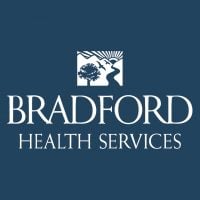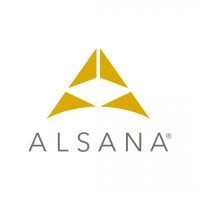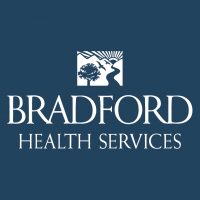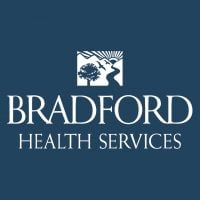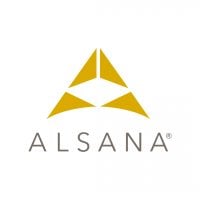Chilton - Shelby Mental Health Center - Pelham
Drug Rehab Center in Pelham, Alabama
Chilton-Shelby Mental Health Center in Pelham offers individualized, comprehensive care and treatment options, including aftercare, detox, drug rehab, dual-diagnosis, intensive outpatient care, outpatient treatment, sober-living and half-way residences, medication-assisted treatment, and many other therapies, for individuals struggling with alcohol, drug addiction, and/or substance abuse.
About Chilton - Shelby Mental Health Center - Pelham in Alabama
Chilton-Shelby Mental Health Center, located in Pelham, Alabama, is a facility that specializes in treating mental health and chemical dependency issues. They offer a nurturing environment that promotes healing and focuses on individual strengths.
• Accredited by SAMHSA and state licensed, ensuring high-quality care and adherence to industry standards.
• Offers a wide range of services, including aftercare support, drug rehab, dual-diagnosis, inpatient, outpatient, residential, and detox programs.
• Experienced in treating alcohol abuse, substance abuse, family conflict, trauma, PTSD, and pregnancy-related concerns.
Chilton-Shelby Mental Health Center believes that recognizing the need for help is the first step towards solving the problem causing distress. Their treatment philosophy is grounded in the belief that chemical dependency is both a spiritual and medical disease, and that treatment should be nurturing rather than punitive or degrading.
The center treats a variety of addictions and issues, including alcoholism, drug addiction, substance abuse, dual diagnosis, and opioid addiction. They offer several levels of care and treatment methods, such as family therapy, group therapy, individual therapy, aftercare, detox, medication-assisted treatment, cognitive behavioral treatment, dialectical behavioral therapy, trauma therapy, and more.
Genders
Ages
Modality
Additional
Accreditations
State License
SAMHSA
Conditions and Issues Treated
Substance abuse creates problems that affect people in Pelham, AL on many levels. First, substance abuse affects the individual who is abusing drugs or alcohol. This can result in health problems, including heart damage and overdose. Substance abuse also affects the user’s family, friends, co-workers, classmates, or peers. These people feel frustrated because they do not know how to help their loved ones struggling with addiction. At the same time, the addict cannot control his behavior. Lastly, friends and family members of addicts are affected financially by substance abuse.
The good news is that effective treatments can help prevent substance abuse or treat its effects on the user. These treatments, which include behavioral therapy and counseling sessions, target the underlying causes of substance abuse, helping users achieve sobriety so they can regain control over their lives. They also teach users to cope with stress in ways other than using drugs or alcohol.
Opioid addiction has become a significant health problem in the United States. When a person’s life becomes unmanageable because of an opioid addiction, treatment can help them get sober. Treatment includes medical care and counseling.
“With so many people struggling with opioid addiction, we need more care and attention for those who want to quit. Opioid addicts often take opioids when they experience a painful injury – that’s how the cycle starts! When someone begins taking their medication differently than prescribed or takes an excessive amount of drugs, it means they’re hooked on drugs and in danger of overdosing.
The most successful way to beat this is through detoxing from these types treatments at Chilton - Shelby Mental Health Center - Pelham in . Most facilities start by using medical support during the process while providing counseling services; rehabilitation comes later on after treatment has been completed successfully.
A “dual diagnosis” is when the individual has two medical issues at the same time. The top co-occurring mental disorders with addiction are depression, anxiety, ADHD, bi-polar disorder. Addiction is also considered a mental illness that is not a choice but rather a medical condition. Addiction can be caused by any number of underlying issues.
Dual diagnosis is provided by Chilton - Shelby Mental Health Center - Pelham to treat addictive tendencies as well as any untreated mental illnesses. This ensures successful long term health and recovery for patients after treatment has been completed.
Dual diagnosis is provided by Chilton - Shelby Mental Health Center - Pelham to treat addictive tendencies as well as any untreated mental illnesses for people in Alabama. This ensures successful long term health and recovery for patients after treatment has been completed.Levels of Care Offered
This center offers a variety of custom treatment tailored to individual recovery. Currently available are Aftercare Support, Detox, Drug Rehab, Dual-Diagnosis, Inpatient, Outpatient, Residential, with additional therapies available as listed below.
The first level of recovery is detox. It involves giving a person the opportunity to get the toxins out of their body safely. The individual receiving treatment at Chilton - Shelby Mental Health Center - Pelham typically will get ill during detox, and they will often start using again to get rid of unpleasant emotions and complicated physical responses. It is why having a Alabama medical professional present is so critical. A medical professional can make sure that patients do not start using again during detox and stay physically healthy during the process. They will also have treatment on a mental level to relieve their symptoms and guide them through the process.
Going to an inpatient rehab facility means living there while all aspects of addiction or co-occurring disorder get addressed. The treatment involves medical supervision, therapy, and future planning.
This type of rehabilitation provides a drug-free environment for people who struggle with chronic/long-term addiction without having access to drugs outside the center (or their own home). It takes away any distractions because they live there 24 hours per day. If someone is trying to break out old habits, which could lead them back into substance abuse, things like jobs or school can be put on hold until after they complete their stay to focus solely on recovery.
Outpatient programs at Chilton - Shelby Mental Health Center - Pelham, the Pelham resident can live with their family while continuing with their job or studies. Treatment includes educating the patient on drug abuse, medications, and counseling sessions at the individual or group level. Outpatient treatment plans cover diagnosis, detoxification, management, and counseling. They are a popular option for those who have graduated from inpatient facilities.
Residential treatment programs are those that offer housing and meals in addition to substance abuse treatment. Rehab facilities that offer residential treatment allow patients to focus solely on recovery, in an environment totally separate from their lives. Some rehab centers specialize in short-term residential treatment (a few days to a week or two), while others solely provide treatment on a long-term basis (several weeks to months). Some offer both, and tailor treatment to the patient’s individual requirements.
Without aftercare support, addicts can easily relapse back into addiction. It is crucial to integrate the addict back into society. Aftercare support should take place after outpatient treatment has ended.
There are a few different types of aftercare support that patients can seek after completing an inpatient treatment program:
- 12 Step Self-help groups (AA, NA)
- Therapeutic communities,
- Long-term, structured sober living arrangements
- Halfway houses (residential treatment centers)
Many different support groups exist for addicts to seek help after treatment. Some are more effective than others, depending on the person’s addiction, background, and other factors.
Therapies & Programs
Individual therapy is a form of counseling where you meet with a trained professional one-on-one. Meeting with a therapist in this setting allows for a personal and trusting relationship to be built. This allows the patient to open up about sensitive or private issues they may not feel comfortable discussing in a group. Individual therapy helps identify the root causes of your addiction, which can help prevent relapse.
Family therapy is often done alongside drug treatment to help addicts stay sober. The goal of family therapy for drug addiction is to create an environment where communication can happen without judgment, hostility, or blame. The therapist will sit with the family so they can learn how to communicate differently and provide new tools for dealing with emotions so that people don’t want to drink or do drugs. It’s important for families to focus on relapse prevention plans during treatment so that if the addict feels like they want to use again, they’ll know what steps they need to take together to prevent it from happening again in the future.
Group therapy sessions are another common addiction recovery service. These group sessions typically involve six to 12 addicts who meet regularly with a trained professional for support and guidance.
During these sessions, the group shares their experiences with one another and provides feedback that can help each member avoid relapse or overcome specific obstacles they are facing in their recovery process. With this type of support and guidance, addicts can feel like they are part of a community that understands their struggles and will help them get through the hard times.
Payment Options Accepted
For specific insurance or payment methods please contact us.
Chilton Shelby Mental Health Center Associated Centers
Discover treatment facilities under the same provider.
- Chilton Shelby Mental Health Center - Mitchell Center in Calera, AL
- Chilton - Shelby Mental Health Center - Hamilton Center in Calera, AL
- Chilton Shelby Mental Health Center - Clanton in Clanton, AL
- Chilton Shelby Mental Health Center - Carrie Gray Home in Clanton, AL
- Chilton Shelby Mental Health Center - Calera in Calera, AL
Learn More About Chilton Shelby Mental Health Center Centers
Additional Details
Specifics, location, and helpful extra information.
Pelham, Alabama 35124 Phone Number(205) 663-1252 Meta DetailsUpdated April 15, 2024
Staff Verified
Chilton - Shelby Mental Health Center - Pelham Patient Reviews
There are no reviews yet. Be the first one to write one.
Pelham, Alabama Addiction Information
Opioids, such as heroin, fentanyl, and prescription opioids are related to more than half of all drug-related overdoses in Alabama. Alcohol is the most frequently used substance in Alabama; 85,000 Alabamians use cocaine every single year. In Alabama, there are four times as many vehicle crashes involving alcohol as there are normal vehicle crashes.
Treatment in Nearby Cities
- Brewton, AL ( mi.)
- Monroeville, AL (125.3 mi.)
- Huntsville, AL (100.8 mi.)
- Scottsboro, AL (105.5 mi.)
- Woodville, AL (97.7 mi.)
Centers near Chilton - Shelby Mental Health Center - Pelham
The facility name, logo and brand are the property and registered trademarks of Chilton - Shelby Mental Health Center - Pelham, and are being used for identification and informational purposes only. Use of these names, logos and brands shall not imply endorsement. RehabNow.org is not affiliated with or sponsored by Chilton - Shelby Mental Health Center - Pelham.





